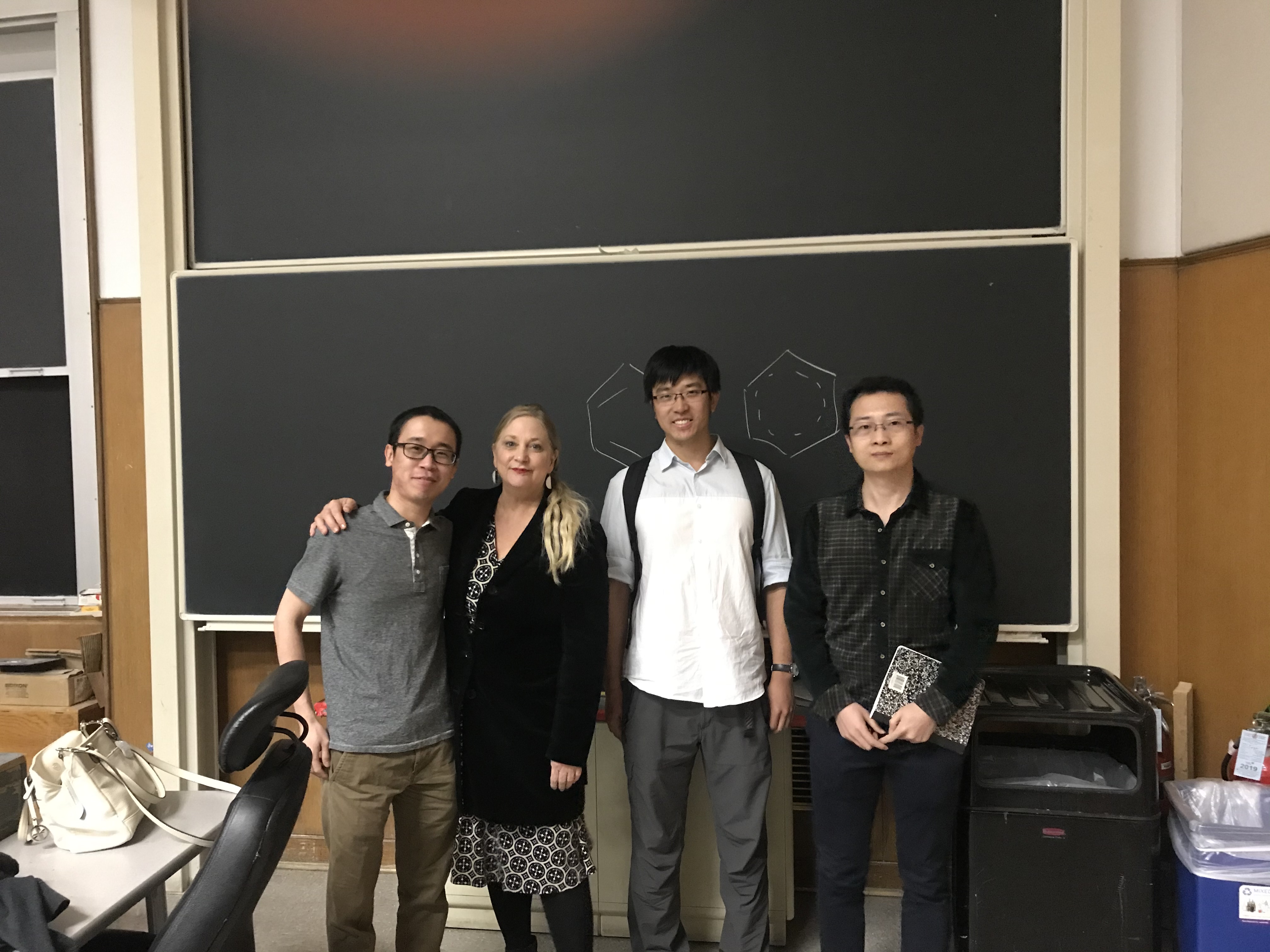
The Royal Society of Chemistry Honors Kim Dunbar
Renowned chemist Kim Dunbar has earned some of the world’s top scientific distinctions and achievements, especially in the field of inorganic chemistry. To honor her prolific career spanning more than three decades, the Royal Society of Chemistry honored her with a special issue of their publication Dalton Transactions.

The Royal Society of Chemistry’s Dalton Transactions is a journal featuring work in all areas of inorganic chemistry. Their topics shed light on subjects such as organometallic, bioinorganic and materials chemistry of the elements, with applications including synthesis, catalysis, energy conversion/storage, electrical devices and medicine. Readers of Dalton Transactions are confident in the publication’s high-quality, original articles and columns, and have long regarded it as one of the most respected scientific publications on chemistry anywhere.
Introducing the special edition, Michael Shatruk of the Department of Chemistry and Biochemistry of FSU, and Eric Schelter and Daniel Mindiola of the Department of Chemistry at the University of Pennsylvania commented on Kim Dunbar’s success and influence on their own careers.
“[We] are honored and very proud to serve as guest editors for this special issue in Dalton Transactions honoring the many contributions of Prof. Kim Dunbar, the Davidson Chair of Science and Distinguished Professor of Chemistry at Texas A&M University,” said Daniel Mindiola. “Kim is the first female faculty to hold Texas A&M’s highest academic faculty rank. She has inspired and guided our careers as scientists and instilled in us a strong foundation of the beauty of synthetic inorganic chemistry.”
He went on to mention Kim Dunbar’s research efforts, which includes fundamental coordination chemistry and its broader impacts. Her work has unveiled new understandings of the subject and its applications in chemotherapeutic reagents, molecular magnetism, synthetic conductors, and supramolecular archetypes.
Much of her current research is based on metal–metal bonds after working with pioneers in the field like the late Professor F. Albert Cotton, a W. T. Doherty-Welch Foundation Chair and Distinguished Professor of Chemistry at Texas A&M University, and Professor Richard Walton of the John A. Leighty Distinguished Professorship and Emeritus at Purdue University.
“Another of Kim’s qualities, well-known to many of her former and current students, postdocs, colleagues, and mentees, is her ability to instill excitement in those who work with her.” Daniel Mindiola said. “She is also a dedicated teacher and mentor. We remember fondly her contagious enthusiasm for sharing knowledge with students in classrooms and for learning about new results at the infamous Saturday morning Kim Dunbar group meetings.”
To date, Kim Dunbar has written or appeared in over 400 research publications in peer-reviewed and high-profile chemistry journals, as well as authoring more than 16 book chapters. In addition, she’s served on various committees and subcommittees at the American Chemical Society (ACS) and volunteered as one of the first advisors for the ACS Scholars Program.
“We are thrilled to see the many, varied contributions to this special issue that reflect the range of Kim’s contributions to the field of chemistry and the impact of her science on her friends, colleagues, former students and postdocs,” said Daniel Mindiola. “We offer our sincere congratulations to Kim on the exceptional body of work amassed through her distinguished career and we look forward to her many years of creative discoveries yet to come. We are thankful to Kim Dunbar for her unfailing support over our own careers.”
